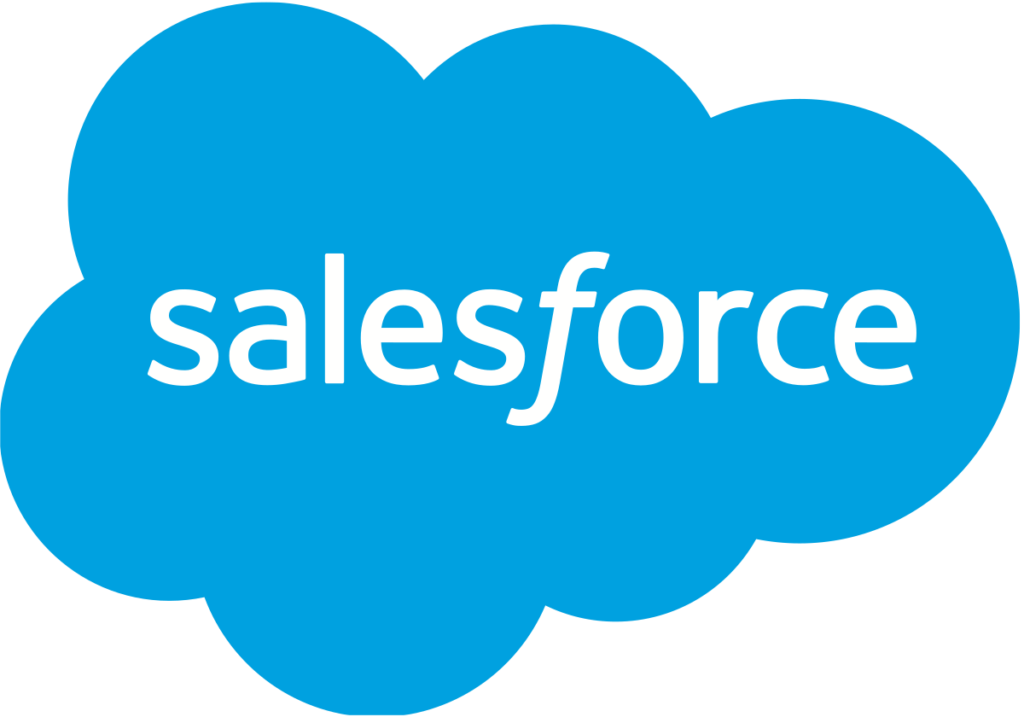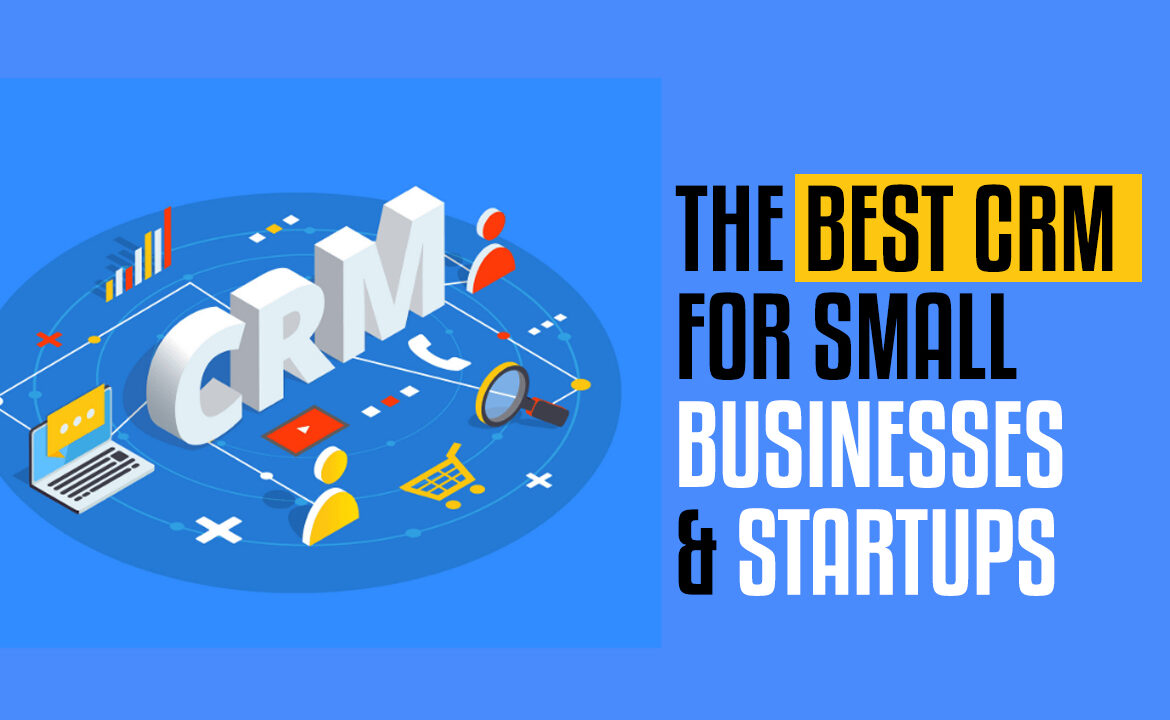The 7 Best CRM for Small Businesses and Startups
If you are a small business or startup, then you know that you need to be efficient and effective with your time and resources. That is why choosing the best CRM for small businesses is so important. A CRM can help you manage your customer relationships and sales processes, which will allow you to focus on growing your business. This blog post will discuss the best CRMs for small businesses and startups, based on their needs and budget. We will also provide a few tips on choosing the right CRM for your business.
A CRM or Customer relationship management system is required for every new company to store their contacts, centralize their operations, and manage customer interactions.
The CRM software industry has exploded in recent years, with each new product coming to the market bringing its own set of distinct features. However, for cash-strapped startups, the two most crucial aspects are affordability and scalability. Migrating from one CRM to another later on may be difficult; as a result, it’s vital to choose a system that won’t get outgrown right away. It should be able to grow along with your company.
All of these CRM or Customer relationship management solutions are budget-friendly and scalable. Keep reading to learn more about them. You’ll have all the information you need at the end of this article to make an informed decision.
Also, read Bounce Rate Reduction Tips: How to Keep Visitors on Your Website, 7 Tips for Content Marketing that Will Help Your Business, The Importance of Email Marketing: Why It’s Critical for Your Business
What is CRM software?
Customer relationship management, or CRM, is an acronym for Customer Relationship Management. It’s self-evident that one of the most crucial business software to invest in is CRM. At its core, CRM software encompasses all customer-oriented tactics and technologies. Furthermore, it directly benefits existing and potential customers by assisting with improved customer relationship management.
Benefits of using CRM for startups
A CRM is software that helps you organize your contacts, learn who they are, produce reports, save time, and make money.
When it comes to selecting a CRM or Customer relationship management, simplicity should be expected. Fortunately, there are now several CRMs on the market that just require minimal training and have an intuitive user experience. A well-designed user interface will ensure that everyone in your company uses it correctly.
Sales automation, sales forecasting, and marketing campaign management are all features that your CRM should have. Customization options, on the other hand, allow you to tailor CRM software to your unique business requirements. If you’re operating in new waters, being able to modify contact and opportunity fields, as well as other elements, is quite useful.
As a company, you may not have your own IT department, therefore you’ll want to make sure that the CRM you pick is backed by an excellent customer support team that helps ease the product’s learning curve, and answers your nagging questions promptly, and solves technical difficulties.
There are also expenses to consider: a major barrier for startups; you’ll want something that doesn’t break the bank, with tiered pricing plans that increase gradually (in other words: no expensive surprises).
Also, read SEO 2022: Still Relevant in a Digital Marketing World?, 15 Best Marketing Tools for Beginners in 2022, The Benefits of a Chatbot for Business: Everything You Need to Know
What is CRM for a small firm or startup?
While CRM principles will be similar for a large or small company, startups may find certain CRM functions more valuable. Additionally, the cost of CRM software is an important consideration when selecting it. Small companies do not have a dedicated team that does software testing as big businesses do. Continue reading to discover how a little firm can quickly evaluate the best CRM software.
The time it takes to complete the project from beginning to end, as well as the complexity involved, are all crucial aspects to consider while making a selection for businesses. A start-up may not have its own staff trained in customizing software, so an adaptable CRM system will be effective. Cloud-based CRM solutions also alleviate startup operational challenges.
Types of CRM
There are different types of CRM or Customer relationship management, and the best CRM for small businesses and startups will depend on the specific needs of the business. Some of the most common types of CRM include customer relationship management, sales force automation, and marketing automation. Each type of CRM has its own benefits and features, so it’s important to choose the right one for your business.
Customer relationship management (CRM) is a type of software that helps businesses manage their customer relationships. It enables businesses to track customer interactions and collect data about customers, which can be used to improve customer service and marketing campaigns.
Salesforce automation (SFA) is a type of CRM or Customer relationship management that helps businesses manage their sales process. It enables businesses to track customer interactions, manage leads and opportunities, and automate sales tasks.
Marketing automation is a type of software that helps businesses automate their marketing activities. It enables businesses to track customer interactions, manage campaigns, and create targeted marketing lists. Marketing automation can also help businesses measure the results of their marketing campaigns.
The best CRM for small businesses and startups will depend on the specific needs of the business. However, all three types of CRM or Customer relationship management offer benefits that can help businesses improve customer service, increase sales, and better understand their customers. Choose the right CRM for your business to get the most out of it.
Best CRM for Small Businesses and Startups
- Zoho CRM

Zoho CRM is a cloud-based customer relationship management (CRM) software that combines powerful functionality with simplicity of use. Zoho CRM offers outstanding customer management and lead generation tools, as well as no compromise in capability, thanks to its cloud-based nature. Automated processes, reporting tools, and more add to the ease of integration with other Zoho tools, along with a great free plan offering terrific value.
- HubSpot

HubSpot is the finest CRM for startups because it has a variety of features that make it ideal for small businesses. There’s the HubSpot for Startups program, which is free and allows you to test before you buy, as well as the HubSpot Academy, which offers unlimited free access to training materials. Overall, HubSpot is an excellent CRM package for both startups and larger enterprises.
- Agile CRM

At one end of the spectrum, Salesforce provides a free, full-featured sales CRM or Customer relationship management for up to 10 users that are expressly designed for startups. The platform integrates contact management, marketing automation, real-time alerts, VoIP telephony, a social networking integration and email and web tracking. Automate all your future voice calls and follow-ups by adding your appointment calendar online and Agile CRM will do it for you. The in-app document attachment is simple.
- Copper
Copper is a fantastic option for enterprises that want to retain control over their data and give users the freedom of choice. It’s one of my favourite G Suite account upgrades because it improves productivity, improves customer service, and enables seamless integration with Gmail, Google Calendar, Google Contacts & Calendars, as well as other Google tools you (most likely) use on a daily basis.
Copper automates data entry and has smart identification features. It also enhances sales contacts and possibilities by integrating natively with G Suite.

Improved management of teams and workflows with weekly pipeline progress reports that include drag-and-drop functionality, bespoke filters, and alerts when deals might be going bad. Provides an eye-catching sales pipeline for easy tracking and management of leads throughout the qualification process.
- Salesforce

When it comes to CRM or Customer relationship management software, Salesforce has the greatest brand recognition. Workflows and approvals, sales automation, and contact management are all examples of its capabilities.
- Insightly
Insightly is easy to use and cheap, and it has the keyword, contact, and project tags. As a result, it enables rapid search choices and information sharing.

- Pipedrive
Pipedrive is a relative newcomer to the CRM or Customer relationship management sector and was created with startups in mind. It’s meant to be everything growing businesses want: flexible, cost-effective, results-oriented, and simple to use.
The sales pipeline is at the heart and soul of Pipedrive. The CRM’s creators recognized that this is the most significant element for new enterprises, not just for sales and contact management, but also in terms of addressing other problems that arise when starting a company.

In the Pipeline View, you may track deals and view which stage of your pipeline they are in. This feature allows your staff to assess their sales progress and priorities.
You can customise your pipeline to match your company’s unique sales process and add your own sales stages, actions, and team members.
Pipedrive is one of the most user-friendly and simple CRM or Customer relationship management solutions available, making it ideal for businesses with limited IT resources.
All of the CRMs listed above are excellent choices for small businesses and startups. It really depends on your specific needs and preferences as to which one is the best fit for you. Salesforce is a great option for enterprises, while Copper is perfect if you want more control over your data.
HubSpot and Agile CRM or Customer relationship management are both good choices if you need lots of training and support, while Insightly is perfect for rapid search and information sharing. Pipedrive is ideal if you need a simple CRM that’s easy to use. Whichever CRM you choose, make sure it fits well with the other tools you’re using in order to get the most out of your sales process.
Also, read Blogging In eCommerce Businesses – Is Blogging a Good Idea for eCommerce Businesses? , Digital Marketing Across Various Industries: Impact of Digital Marketing In Business, What Is SEO and How Important Is It for Google AdSense Approval?


1 thought on “The 7 Best CRM for Small Businesses and Startups”